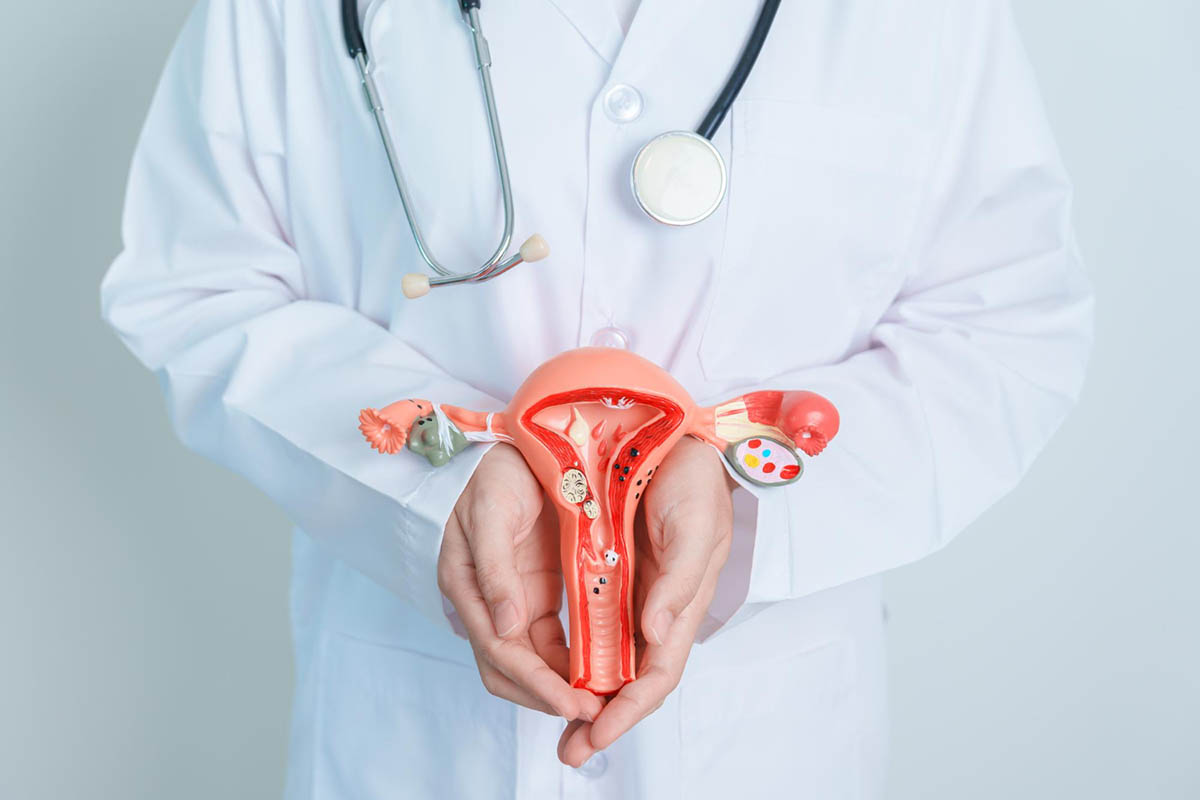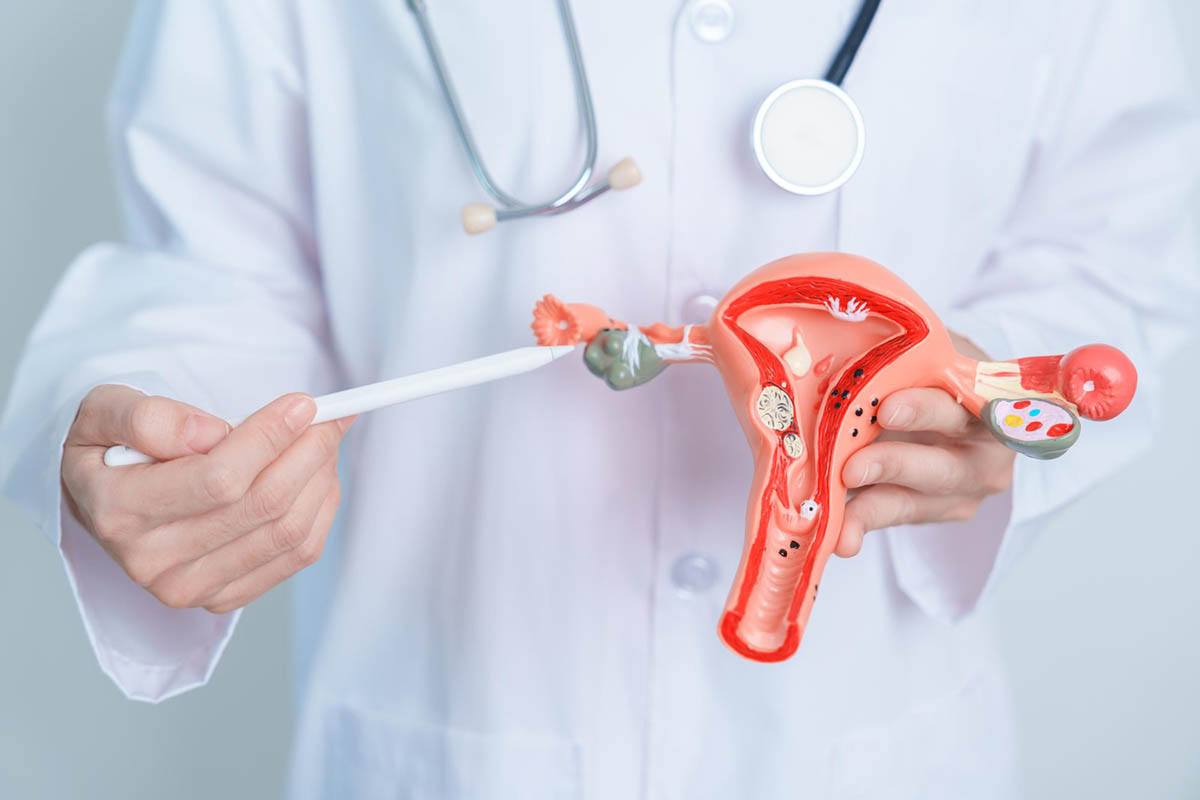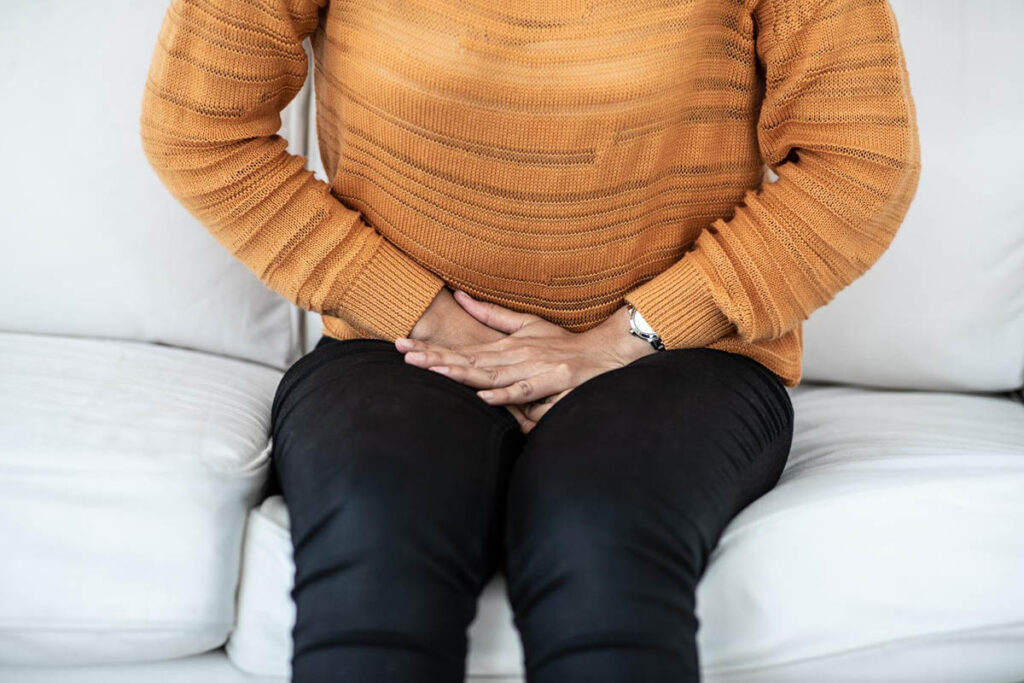Introduction
Perimenopause marks a significant transition in a woman’s life, signaling the beginning of the end of her reproductive years. This phase can bring about a host of changes, both physically and emotionally. Understanding what is perimenopause symptoms, recognizing its signs, and knowing how to manage them can help women navigate this period with greater ease and confidence. Awareness of the early perimenopause signs can facilitate timely interventions and improve overall well-being.
What is Perimenopause?
Perimenopause, often referred to as the menopause transition, is the period leading up to menopause when a woman’s body begins to undergo changes in preparation for the end of menstruation. This stage is characterized by hormonal fluctuations that can lead to a variety of symptoms during perimenopause.
Definition of Perimenopause
Perimenopause is defined as the time period during which a woman’s body makes the natural transition toward permanent infertility (menopause). It typically begins several years before menopause, as the ovaries gradually start producing less estrogen, leading to early perimenopause signs such as irregular periods and hot flashes.
How it Differs from Menopause
If you are wondering “What is the difference between menopause & perimenopause?” Perimenopause is the transitional period leading up to menopause, characterized by irregular periods and hormonal fluctuations, typically starting in a woman’s 40s. Menopause is defined as the point when a woman has not had a menstrual period for 12 consecutive months, marking the end of reproductive years with consistently low estrogen levels.
During perimenopause, women still experience menstrual cycles, though they may become irregular. This highlights the difference between menopause & perimenopause, where the latter involves ongoing hormonal fluctuations and symptoms.
Average Age Range and Onset of Perimenopause
Perimenopause generally starts in a woman’s 40s, but it can begin as early as the mid-30s or as late as the mid-50s. The duration of perimenopause can vary widely, lasting from a few months to several years. Understanding the age of menopause can help in recognizing the signs of perimenopause and managing expectations for this life stage.
Symptoms of Perimenopause

Common Symptoms
The symptoms of perimenopause can vary greatly among women, but some are more commonly experienced than others.
Irregular Periods
As hormone levels fluctuate, menstrual cycles can become irregular. Perimenopause periods may be shorter, longer, heavier, or lighter than usual, and the time between periods may change. This irregular bleeding is often one of the first signs of perimenopause. The menstrual cycle becomes unpredictable as estrogen production fluctuates.
Hot Flashes
Hot flashes are sudden feelings of warmth that spread over the body, often accompanied by sweating and redness. These can occur during the day or night (night sweats) and can be mild or severe. Vasomotor symptoms like hot flashes are common in perimenopausal women.
Sleep Disturbances
Hormonal changes can disrupt sleep patterns, leading to difficulty falling asleep, staying asleep, or experiencing restful sleep. This can result in fatigue and irritability during the day, impacting daily activities and overall quality of life. Sleep disruption can significantly affect daily life and overall health.
Less Common Symptoms
Mood Swings
Fluctuating hormones can affect neurotransmitters in the brain, leading to mood swings, irritability, or feelings of depression and anxiety. These emotional changes are often linked to the hormonal imbalances experienced during perimenopause. Symptoms of menopause can also include emotional and psychological effects that impact daily life.
Changes in Libido
Some women may experience changes in sexual desire. This can be an increase or decrease in libido, influenced by hormonal shifts and other physical or emotional factors. The transition to menopause can affect sexual health and sex life significantly.
Variation Among Individuals
The experience of perimenopause can differ greatly among women, influenced by several factors.
Age of Onset
The age at which perimenopause begins can vary widely, affecting the type and severity of symptoms experienced. This variation is influenced by genetic factors and overall health history.
Duration
The length of perimenopause can range from a few months to several years, influencing the duration and progression of symptoms. Late perimenopause can present more severe or prolonged symptoms.
Genetic Factors
A woman’s genetic background can play a role in the onset and experience of perimenopause, including the age it begins and the types of symptoms experienced.
Lifestyle Factors
Lifestyle choices, such as diet, exercise, smoking, and stress levels, can influence the severity and management of perimenopause symptoms. Maintaining a healthy weight and active lifestyle can mitigate some bothersome symptoms. Weight loss through light exercise and healthy eating can be beneficial.
Biological Changes During Perimenopause
Hormonal Fluctuations
During perimenopause, levels of estrogen and progesterone fluctuate unpredictably, leading to many of the physical and emotional symptoms associated with this stage. A drop in estrogen can cause significant changes in the body and mind. The hormone estrogen plays a crucial role in regulating various body functions.
Physical Changes in the Reproductive System
The ovaries gradually produce less estrogen, leading to changes in the menstrual cycle and other reproductive functions. The lining of the uterus may become thinner, and the frequency of ovulation decreases. These changes can cause symptoms like heavy bleeding and breast tenderness. The reproductive cycle becomes less predictable, and perimenopausal women may experience irregular periods.
Impact on Overall Health
Bone Density
Decreased estrogen levels can lead to a reduction in bone density, increasing the risk of osteoporosis and fractures. It’s important to monitor bone health and consider treatment options like estrogen therapy to mitigate this risk.
Cardiovascular Health
Fluctuating hormones can affect cardiovascular health, potentially increasing the risk of heart disease. It is important to monitor and manage blood pressure, cholesterol levels, and overall heart health during this time to reduce the risk of heart disease.
Emotional and Psychological Effects
Entering perimenopause can be emotionally challenging for many women. The hormonal changes, coupled with the realization of aging and the end of fertility, can lead to a range of emotional responses.
Tips for Mental Health and Wellness
Mindfulness and Meditation
Practicing mindfulness and meditation can help manage stress and improve emotional well-being. These techniques promote relaxation and can help women cope with the emotional fluctuations of perimenopause.
Regular Exercise
Engaging in regular physical activity can boost mood, reduce stress, and improve overall health. Exercise releases endorphins, which can help combat feelings of depression and anxiety. Light exercise, such as walking or yoga, can be especially beneficial during this period.
Healthy Sleep Habits
Establishing a regular sleep routine and creating a restful sleep environment can improve sleep quality. Avoiding caffeine and electronic devices before bed can also help. Proper sleep hygiene can alleviate some menopausal symptoms and improve daily life.
Cognitive Behavioral Therapy (CBT)
CBT is an effective therapy for managing anxiety, depression, and other emotional challenges. It helps individuals develop coping strategies and positive thinking patterns, which are beneficial during the perimenopausal transition.
Hobbies and Interests
Pursuing hobbies and interests can provide a sense of purpose and enjoyment, helping to reduce stress and improve emotional well-being. Engaging in activities that bring joy can improve mental health during this life stage.
Managing Perimenopause Symptoms

Lifestyle Adjustments
Diet
Eating a balanced diet rich in fruits, vegetables, whole grains, and lean proteins can support overall health and alleviate some perimenopause symptoms. Foods rich in calcium and vitamin D are important for bone health. Avoiding spicy foods and caffeine can help reduce hot flashes and improve sleep quality.
Exercise
Regular physical activity, including weight-bearing exercises, can help maintain bone density, improve cardiovascular health, and boost mood. Exercise can also help manage weight gain associated with hormonal changes. Light exercise like walking or yoga can be particularly beneficial.
Sleep Hygiene
Maintaining good sleep hygiene, such as establishing a regular sleep schedule and creating a comfortable sleep environment, can improve sleep quality. This is crucial for managing fatigue and irritability during perimenopause. Sleep disruption can be mitigated with proper routines.
Physical Therapy Treatments
Pelvic Floor Physical Therapy
Pelvic floor physical therapy can help address issues such as incontinence and pelvic pain, which may arise during perimenopause. Strengthening pelvic floor muscles can improve urinary incontinence and overall pelvic health.
Manual Therapy
Manual therapy techniques, including massage and joint manipulation, can alleviate musculoskeletal pain and improve mobility. This can be beneficial for managing muscle aches and joint pain.
Exercise Prescriptions
A tailored exercise program can help manage weight, improve cardiovascular health, and reduce the risk of osteoporosis. Exercise prescriptions should be personalized to address individual needs and limitations.
When to Consult a Healthcare Provider
It’s important to consult a healthcare provider if perimenopause symptoms are severe, significantly affecting quality of life, or if there are concerns about bone density or cardiovascular health. A healthcare provider can offer guidance, recommend treatments, and monitor overall health during this transition. They can also provide information on hormone replacement therapy and other treatment options.
At Vitality Therapy & Performance, we understand the unique challenges women face during perimenopause and menopause. Our specialized pelvic floor therapy addresses the physical and hormonal changes that accompany these stages, offering personalized treatments designed to improve your quality of life. Our expert team provides comprehensive care to help you navigate this transition smoothly, ensuring you maintain vitality and well-being throughout your journey.
Conclusion
Perimenopause is a natural phase in a woman’s life that comes with various physical and emotional changes. Understanding the symptoms and how to manage them can help women navigate this transition with confidence and ease. By making lifestyle adjustments, seeking appropriate treatments, and maintaining a positive outlook, women can embrace this stage of life and maintain their health and well-being.
FAQs
What happens to the body and mind when perimenopause starts?
When perimenopause starts, the body undergoes hormonal fluctuations that can lead to irregular periods, hot flashes, and sleep disturbances. Emotionally, women may experience mood swings, anxiety, and changes in libido. These changes are due to a drop in estrogen and other hormonal imbalances. Understanding these symptoms of menopause can help in seeking appropriate treatment for perimenopause symptoms.
What are the worst symptoms of perimenopause?
The severity of symptoms varies among women, but some of the most challenging symptoms can include severe hot flashes, significant mood swings, and debilitating sleep disturbances. Other bothersome symptoms may include weight gain, heavy periods, and joint pain. These menopause symptoms can significantly impact daily life.
Do you feel sick with perimenopause?
Some women may experience symptoms that make them feel unwell, such as fatigue, headaches, and joint pain. However, these symptoms vary widely and not all women will feel sick during perimenopause. Maintaining a healthy lifestyle and seeking appropriate treatment can help manage these menopause-like symptoms. Consulting with a healthcare professional can provide personalized guidance and support.

